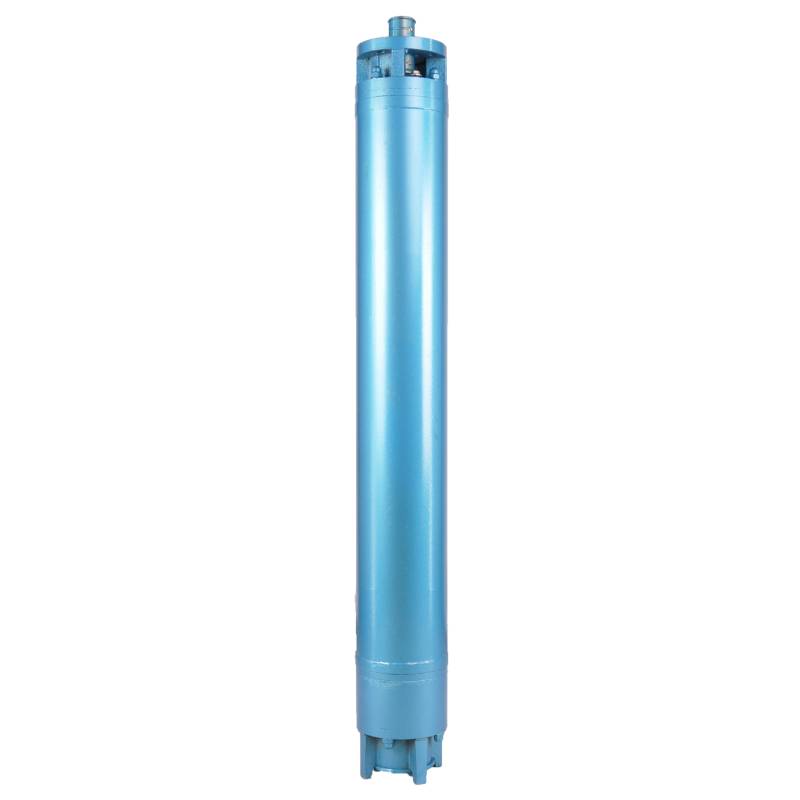Aug . 19, 2024 01:13 Back to list
Single Phase Borehole Pump Selection and Installation Guide for Efficient Water Extraction
Understanding Single Phase Borehole Pumps
Single phase borehole pumps are essential components used in various applications, particularly in rural water supply systems, agriculture, and residential water systems. These pumps are designed to lift water from underground sources, making them crucial for areas that rely on groundwater for irrigation, drinking water, and other needs. This article explores the functioning, benefits, and considerations of single phase borehole pumps.
How Single Phase Borehole Pumps Work
A single phase borehole pump operates using a single-phase electric motor that drives the pump impeller. The pump is submerged in the borehole, typically deep within aquifers, and is capable of lifting water to the surface through a series of pipes. The electric motor, usually powered by a standard household electrical supply, converts electrical energy into mechanical energy, which is then used to move water upward.
These pumps are characterized by their vertical design, allowing them to be installed in narrow boreholes, which are often only a few inches wide. The impellers are specifically designed to handle water flow efficiently, ensuring a consistent and reliable supply. The depth of the borehole and the water table level will determine the pump's capacity and performance, making it essential to select a pump that matches specific site conditions.
Advantages of Single Phase Borehole Pumps
1. Ease of Installation Single phase borehole pumps are generally easier to install than their three-phase counterparts. They are compatible with standard home electrical systems, making them ideal for residential use without the need for complex electrical work.
2. Cost-Effectiveness These pumps tend to be less expensive than three-phase pumps, both in terms of initial purchase price and operational costs. The use of a single-phase motor means lower energy consumption in many cases, further adding to their affordability.
3. Maintenance Single phase borehole pumps often require less maintenance due to their simpler design. Users can typically perform basic maintenance themselves, including cleaning filters and checking electrical connections.
single phase borehole pump

4. Reliability Designed to work in various conditions, single phase borehole pumps are known for their durability and reliable service. They can provide a consistent water supply, essential for agricultural and domestic needs.
Considerations When Choosing a Single Phase Borehole Pump
When selecting a single phase borehole pump, several factors should be considered to ensure optimal performance
1. Static Water Level Assess the depth of the static water level in the borehole. This measurement is critical as it will guide the choice of pump based on its depth rating and flow capability.
2. Flow Rate Requirements Determine the required flow rate for your application. Different pumps offer various flow rates, and choosing one that can meet your specific needs is essential for efficient operation.
3. Power Supply Ensure that the electrical supply matches the pump’s specifications. Single phase pumps typically require 120V or 240V, and having the correct supply will help avoid issues during operation.
4. Installation Environment Consider the conditions of the installation site, including water quality and the possibility of sand or sediment, which can affect pump performance. Some pumps are designed specifically to handle abrasive materials.
5. Local Regulations Be aware of local regulations regarding borehole drilling and pump installation. Compliance is crucial to avoid legal issues and ensure safe water practices.
In conclusion, single phase borehole pumps play a vital role in providing efficient water solutions for a variety of needs. Understanding their operation, advantages, and the considerations necessary for choosing the right pump can help users make informed decisions, leading to effective and sustainable water management.
-
Submersible Water Pump: The Efficient 'Power Pioneer' of the Underwater World
NewsJul.01,2025
-
Submersible Pond Pump: The Hidden Guardian of Water Landscape Ecology
NewsJul.01,2025
-
Stainless Well Pump: A Reliable and Durable Pumping Main Force
NewsJul.01,2025
-
Stainless Steel Submersible Pump: An Efficient and Versatile Tool for Underwater Operations
NewsJul.01,2025
-
Deep Well Submersible Pump: An Efficient 'Sucker' of Groundwater Sources
NewsJul.01,2025
-
Deep Water Well Pump: An Efficient 'Sucker' of Groundwater Sources
NewsJul.01,2025
-
 Submersible Water Pump: The Efficient 'Power Pioneer' of the Underwater WorldIn the field of hydraulic equipment, the Submersible Water Pump has become the core equipment for underwater operations and water resource transportation due to its unique design and excellent performance.Detail
Submersible Water Pump: The Efficient 'Power Pioneer' of the Underwater WorldIn the field of hydraulic equipment, the Submersible Water Pump has become the core equipment for underwater operations and water resource transportation due to its unique design and excellent performance.Detail -
 Submersible Pond Pump: The Hidden Guardian of Water Landscape EcologyIn courtyard landscapes, ecological ponds, and even small-scale water conservancy projects, there is a silent yet indispensable equipment - the Submersible Pond Pump.Detail
Submersible Pond Pump: The Hidden Guardian of Water Landscape EcologyIn courtyard landscapes, ecological ponds, and even small-scale water conservancy projects, there is a silent yet indispensable equipment - the Submersible Pond Pump.Detail -
 Stainless Well Pump: A Reliable and Durable Pumping Main ForceIn the field of water resource transportation, Stainless Well Pump has become the core equipment for various pumping scenarios with its excellent performance and reliable quality.Detail
Stainless Well Pump: A Reliable and Durable Pumping Main ForceIn the field of water resource transportation, Stainless Well Pump has become the core equipment for various pumping scenarios with its excellent performance and reliable quality.Detail
